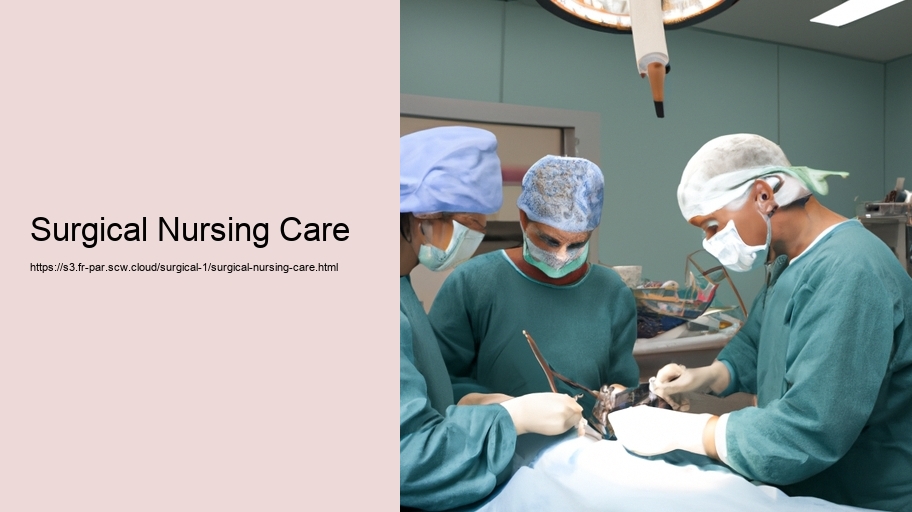Surgical Nursing Care: An Integral Component of Patient Recovery
Surgical nursing care plays a pivotal role in the healthcare system, providing critical support to patients before, during, and after surgery. The role of a surgical nurse is multifaceted, demanding a blend of technical skill, emotional support, and a deep well of knowledge that spans from preoperative preparation to postoperative recovery. This essay delves into the essence of surgical nursing care, highlighting its importance in patient outcomes and the healthcare continuum.
Preoperative Care: Laying the Groundwork for Success
The journey of surgical nursing care begins before a patient even sets foot in the operating room. Preoperative care is the first step in the surgical process, and it is here that surgical nurses lay the groundwork for a successful surgery. They are responsible for preparing patients both physically and emotionally, ensuring that they are informed about the procedure, potential outcomes, and any risks involved.
Nurses conduct preoperative assessments, which involve a thorough review of the patient's medical history, current medications, allergies, and any other factors that may affect the surgery or anesthesia. This assessment is critical, as it helps to identify potential complications and allows for the development of individualized care plans tailored to each patient's unique needs.
In addition to these assessments, surgical nurses educate patients on what to expect during and after surgery, including pain management, potential side effects, and the recovery process. They also provide emotional support, offering a compassionate ear and helping to alleviate any fears or anxieties that patients may have about the upcoming procedure.
Intraoperative Care: The Heart of Surgical Nursing
During the surgery itself, surgical nurses transform into the linchpin of the operating room. Intraoperative nursing care requires a high level of focus and expertise as nurses work alongside surgeons, anesthesiologists, and other medical professionals to ensure a safe and sterile environment.
Surgical nurses assume a variety of roles within the operating room, such as the scrub nurse, who assists the surgeon by passing instruments and ensuring that the surgical field remains uncontaminated. There's also the circulating nurse, who manages the overall environment of the operating room, monitoring the procedure to ensure that standards and protocols are being followed, and responding to the needs of the surgical team.
The vigilance of surgical nurses during the operation is paramount. They must be prepared to react swiftly to changes in the patient's condition, communicate effectively with the surgical team, and manage any emergencies that may arise. The competence and attentiveness of nurses during this phase can significantly impact the outcome of the surgery.
Postoperative Care: Nurturing Recovery
After the surgery, the focus of surgical nursing care shifts to recovery and rehabilitation. Postoperative care is a critical time when nurses must be attuned to the patient's needs, monitoring for signs of complications such as infections, bleeding, or adverse reactions to anesthesia.
Surgical nurses assess the patient's pain levels and administer medication as needed, while also supporting the patient's physiological needs, such as fluid balance and nutrition. They encourage and assist with early mobilization, a key factor in reducing the risk of complications such as deep vein thrombosis or pulmonary embolism.
The role of the surgical nurse extends beyond physical care, as they also provide emotional support to patients and their families. They are there to listen, to comfort, and to educate, ensuring that patients understand their care instructions upon discharge, including wound care, medication management, and follow-up appointments.
Conclusion: The Heartbeat of Surgical Recovery
Surgical nursing care is an indispensable component of the healthcare system, contributing significantly to the quality of patient care and outcomes. Surgical nurses are the advocates, educators, and caregivers who navigate patients through the challenging journey of surgery with expertise, dedication, and compassion. From the initial preparation to the final stages of recovery, these professionals stand as the heartbeat of surgical recovery, ensuring that each patient receives the comprehensive care they need to heal and return to their daily lives. Their contributions are not only technical but profoundly human, embodying the very essence of nursing: to care for others with skill, respect, and empathy.
